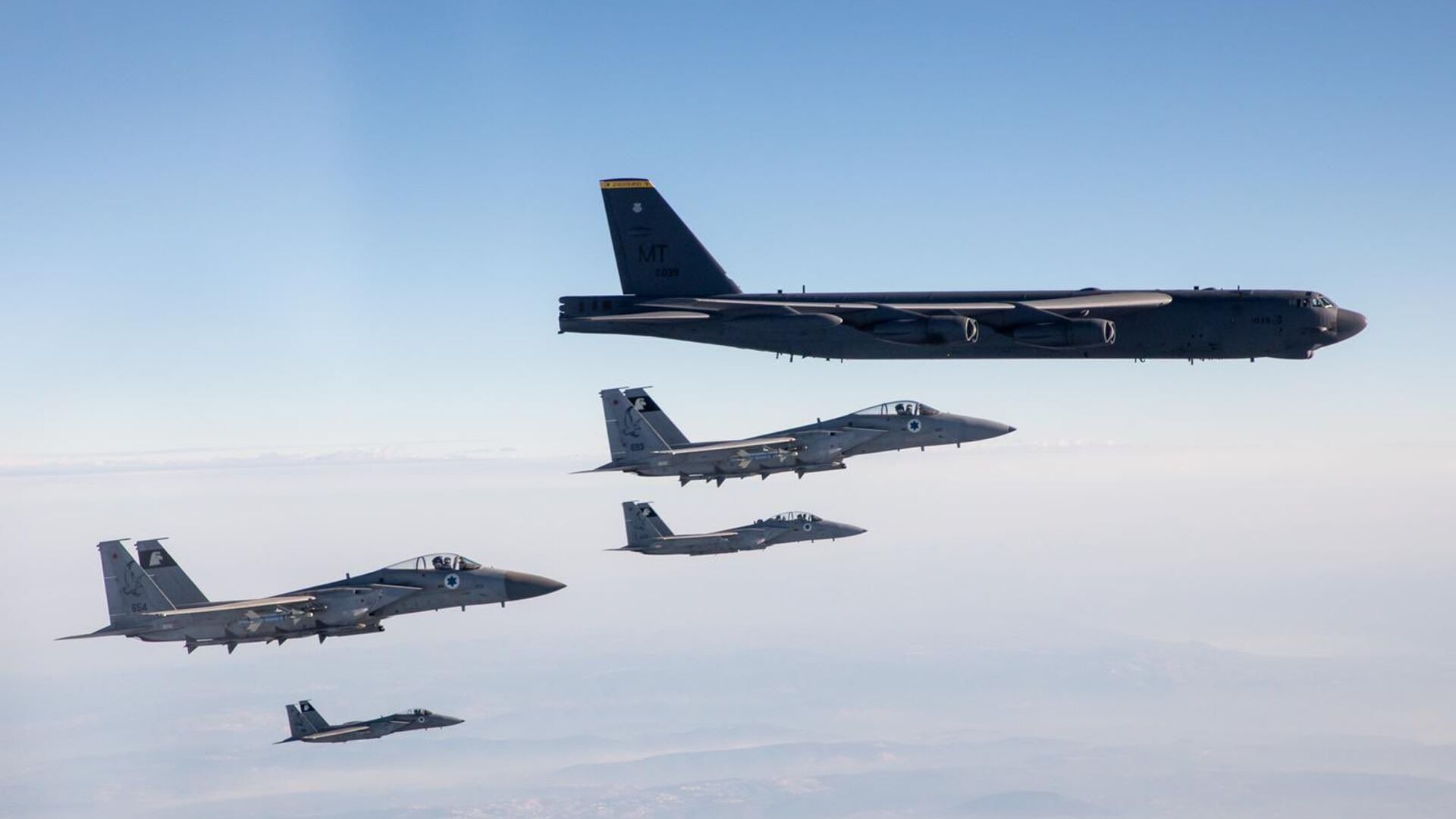Israeli Military Complete ‘Desert Falcon’ Aerial Drills With US in Apparent Show of Force to Iran
23:38 GMT 16.01.2022 (Updated: 18:36 GMT 15.01.2023)

© Photo : Twitter/ Israel Defense Forces
Subscribe
In September, the IDF came under CENTCOM’s area of responsibility after working mostly with the US European Command. At the same time, Israel has continued its military cooperation with the latter. The move was supposed to allow easier direct communications between the IDF and US personnel in the Middle East.
The Israeli Defense Forces announced on Sunday that their air units have successfully carried out the “Desert Falcon” military drills over the Negev sea with Middle East-based CENTCOM, according to an official statement from the country’s military.
Israeli pilots from the 119th Squadron operating F-16 fighter jets and intelligence-gathering Gulfstream G550 planes conducted exercises with the US 122nd, 115th and 55th Fighter Squadrons that operate F-16 jets.
The drills were held in the airspace over the Negev Desert near the IAF’s Ovda Air Base, located in Southern Israel.
“The Israeli air teams flew ‘shoulder-to-shoulder’ with American teams and simulated joint responses to aerial threats and strikes on targets, through education, cooperation, and mutual growth,” the IDF said.
בשבוע שעבר התקיים התרגיל האווירי "Desert Falcon", המהווה אימון משותף של חיל האוויר הישראלי יחד עם AFCENT, פיקוד המרכז של חיל האוויר האמריקאי>>https://t.co/RLRbdfDajy pic.twitter.com/w6ia7TpmHZ
— צבא ההגנה לישראל (@idfonline) January 16, 2022
The drills came after reports claimed that Israel has prepared a secret "wish list" of weapons it wants the US to store in its Israeli-based War Reserves Stock Allies (WRSA-I), which stores American weapons, prepared for use in case of war.
Last year, as it continued to raise concerns about Iran's nuclear program, Israel rolled out a batch of scenarios of possible attacks against Iranian targets, for which the IDF had reportedly received an additional budget of a billion shekels (some $2.9 billion).
